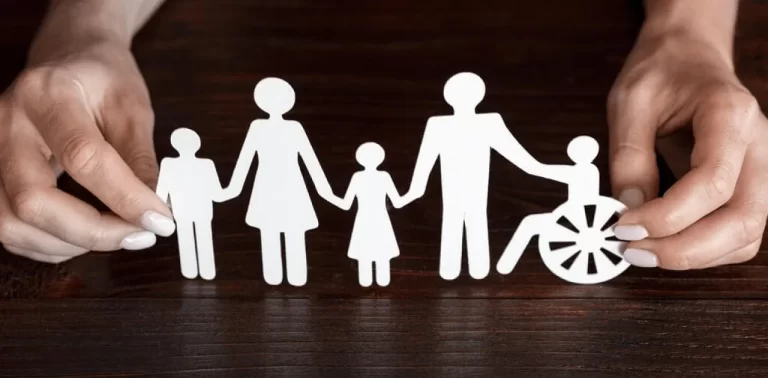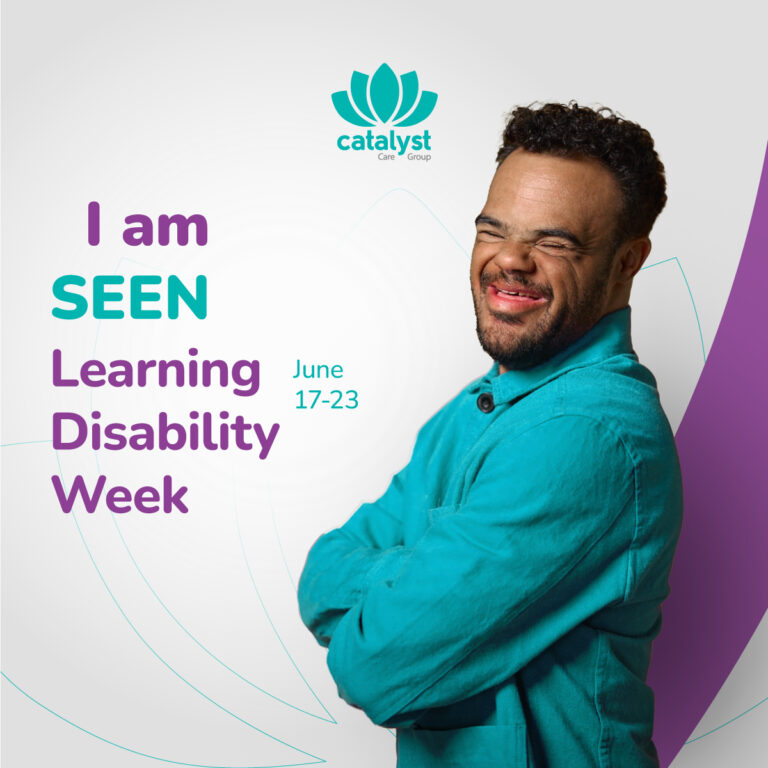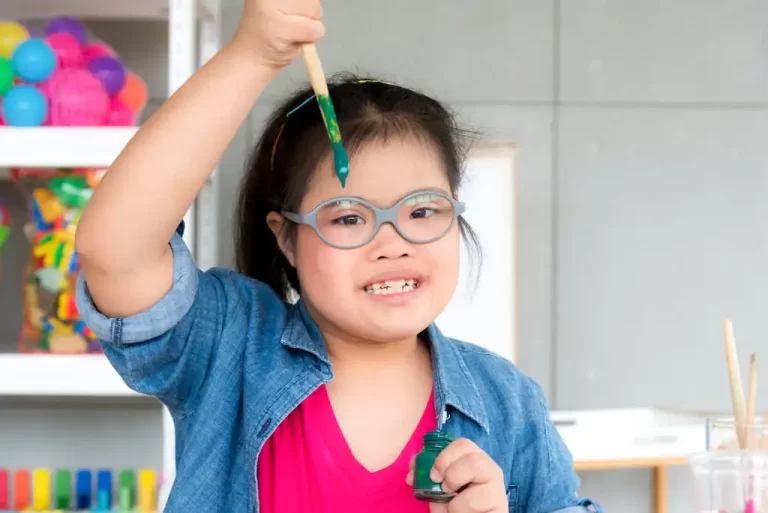Seeing the world in a different way can be beautiful, but for autistic people, it can also bring unique challenges. Sometimes, autistic children and adults may face difficulties with social interaction, communication, and imagination, which can impact their physical, emotional, and mental well-being. Personalised speech and language therapy plays a vital role in supporting autistic people develop communication skills, nurturing confidence, and enhancing their overall quality of life.
Communication Challenges in Autism
Many autistic people live with communication and social interaction challenges, and around 25-30% of autistic children face difficulties in verbally expressing their needs and emotions. These communication differences can sometimes lead to behaviours of concern, as autistic people may feel overwhelmed when trying to convey their needs or emotions effectively.
Due to a lack of timely assessments and effective community support, people’s well-being can decline, leading to a crisis and increasing the possibility of being unnecessarily institutionalised. Therefore, personalised speech and language therapy in autism support is beyond necessary in contributing to quality of life.
Goals of Speech Therapy for Autism
Evidence-based practices in speech and language therapy can have a life-changing impact on autistic people and their families. This is particularly important in early autism support, as timely interventions play a vital role in people’s overall well-being.
The main goals of speech and language therapy include:
- Improve the use of current speech skills.
- Learn new and alternative ways of communication.
- Improve language skills through personalised exercises.
- Use gestures to enhance communication and make it clearer and more effective.
- Learn breathing and swallowing exercises.
During therapeutic support, speech and language therapists at Catalyst Care Group aim to:
- Improve Skill Development: Using communication tools and strategies to build essential life skills or achieve personal objectives.
- Promoting Understanding and Engagement: Assisting people in engaging with their community, respecting their communication preferences, and exploring opportunities for meaningful interaction.
- Fostering Self-Awareness and Advocacy: Empowering people to cultivate self-awareness, independence, and self-advocacy, allowing them to voice their preferences in both daily decisions and significant life choices. This includes training communication partners to enhance communication potential and create a safe, judgment-free space for expressing needs.
With speech and language therapy, people with communication differences or eating, drinking and swallowing needs can access the right support in a timely and cost-effective manner.
Enhancing Communication Skills
Speech and language support plays a pivotal role in enhancing communication skills for autistic people. This support is rooted in understanding and respecting each person’s unique way of communication, whether verbal or non-verbal.
Speech and language therapists work closely with autistic people to identify the best tools, methods, and strategies that encourage effective communication. These may include communication aids, visual supports, or structured language activities aimed at improving both expressive and receptive communication skills.
A key focus of this support is on creating opportunities for participation in daily life, promoting self-expression, and building confidence in social situations.
Therapists also collaborate with families and carers, providing guidance on how to create an environment where communication preferences are honoured, and the person feels encouraged to express themselves freely.
This personalised approach ensures that the autistic person can navigate their world more confidently, engage in decision-making, and advocate for their own needs.

Building Social Interaction Abilities
Building social interaction abilities is an essential aspect of support for people with autism spectrum disorder. It involves developing the skills necessary for meaningful engagement with others, whether through verbal communication, non-verbal cues, or alternative methods like visual aids and assistive technology.
By focusing on these abilities, speech and language therapists help people improve their understanding of social norms, recognise body language, and respond appropriately in various social settings.
This process also involves creating a supportive environment where social interactions are practised in a safe, structured way, allowing people to gradually build their confidence.
Through tailored activities, role-playing, and consistent encouragement, the aim is to foster stronger connections with peers, family members, and the broader community, enhancing not only communication but also overall well-being.
Increased Independence
Increased independence is a key outcome of effective speech and language support.
By developing stronger communication skills, people gain the ability to express their needs, preferences, and decisions more effectively, which contributes to greater autonomy in their daily lives.
This independence can manifest in various ways, from navigating social interactions more confidently to managing personal tasks and making informed choices about their care and well-being.
Support strategies are often individualised, focusing on empowering people to take control of their communication in ways that align with their abilities and preferences.
This might include the use of communication tools, practising self-advocacy, or learning strategies to navigate challenges independently. Ultimately, speech and language development aims to help people lead more self-directed lives, where they feel capable and confident in making decisions that matter to them.
Techniques Used in Speech Therapy for Autism
Speech therapy for autism is all about helping people find their voice in a way that feels right for them. The techniques used are carefully chosen to match each person’s needs, whether improving speech, learning to communicate through gestures, or finding new ways to connect with others. It’s a personalised journey that supports better understanding and meaningful interactions in daily life.
Augmentative and Alternative Communication (AAC)
Augmentative and alternative communication is all about finding alternative ways for autistic people to communicate comfortably.
Whether using simple gestures, picture boards, or advanced devices that speak on their behalf, AAC opens up new ways to express thoughts, needs, and emotions. It’s a personalised approach that helps people connect with others, even when spoken words are challenging.
With AAC, people can share more of who they are, breaking down the barriers that sometimes make communication difficult. It’s all about empowering autistic people to engage with the world in a way that works best for them.
Non-Verbal Communication Skills
Non-verbal communication skills are essential for expressing thoughts and emotions without using words. These skills include gestures, facial expressions, body language, and eye contact, all of which help convey meaning and understanding.
For people with communication differences, non-verbal cues can be a powerful way to communicate and connect with others.
By developing strong non-verbal communication skills, autistic people can enhance their interactions, building relationships and understanding even without spoken words. Whether it’s a simple smile or a meaningful gesture, these skills play a vital role in everyday communication.
Play-Based Learning Approaches
Play-based learning approaches focus on the idea that play is a vital part of how people explore and understand the world around them. In these playful environments, activities are designed to spark curiosity and joy, allowing learners to develop essential skills through hands-on experiences.
Whether building with blocks, engaging in role-play, or exploring nature, these interactions foster creativity, problem-solving, and social connections, making learning feel natural and enjoyable.
For many, play-based learning is a wonderful way to build confidence and independence. By weaving their interests into the learning process, individuals can relate new concepts to their everyday lives, making each moment a chance for discovery and growth. This personalised approach not only makes learning fun but also cultivates a lifelong love of learning.
Multimedia For Speech Therapy
Multimedia support is focused on ensuring that people remain at the centre of their own decision-making, giving them the autonomy to express their emotions, thoughts and needs.
With easy-to-use formats, people can share what’s important to them—like where they want to live, the activities they enjoy, how they prefer to be supported, and who they want by their side.
This approach allows both care recipients and care providers to communicate clearly and efficiently, using tools that truly empower people to shape their own lives. Plus, multimedia provides valuable insight, ensuring that every decision reflects the person’s real preferences and that their wishes are always honoured.
How Speech Therapy Can Benefit Autistic People
Speech therapy can be a transformative experience for autistic people, encouraging them to develop their communication skills and improve their overall quality of life. In these personalised sessions, therapists work closely with people to understand their unique strengths and challenges.
This tailored approach means that each person can develop effective communication methods, whether improving verbal skills, exploring augmentative and alternative communication options, or practising vital social skills for meaningful interactions.
Through engaging activities, autistic people learn to express their thoughts and feelings more clearly, boosting their confidence and independence. By focusing on practical strategies like turn-taking in conversations, recognising non-verbal cues, and expanding their vocabulary, speech therapy equips them with valuable tools for navigating everyday situations.
Ultimately, these skills help foster stronger relationships and create a greater sense of belonging in social environments, allowing them to connect more deeply with others.
In-house Therapy Team Within Catalyst Care Group
At Catalyst Care Group, our in-house therapy team is committed to creating a supportive and nurturing environment tailored to the needs of each person we serve.
With a diverse range of expertise in fields like speech and language therapy, occupational therapy, and Positive Behaviour Support, the team fosters strong relationships that have a long-lasting impact.
This personal connection allows therapists to understand each person’s unique journey, ensuring that their care plans are not just effective but also resonate with their individual experiences and aspirations.
Working closely with caregivers and other professionals, the therapy team emphasises a collaborative approach that prioritises open communication and shared goals. This synergy not only streamlines access to services but also empowers people to take an active role in their care.
By focusing on each person’s strengths and preferences, the in-house therapy team at Catalyst Care Group ensures that everyone feels heard, valued, and encouraged to grow, ultimately helping them achieve their personal best in a compassionate setting.













